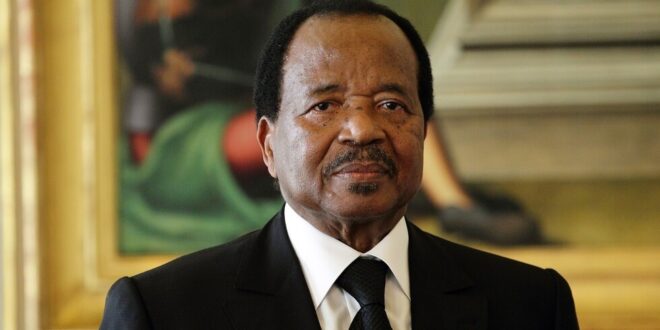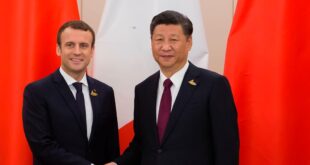Sahar Ragab
In a political drama reminiscent of ancient empires, Cameroon’s Constitutional Council officially declared President Paul Biya’s victory for an eighth term today, Monday, turning the October 12 presidential elections into a mere affirmation of his more-than-four-decade reign.
The 92-year-old leader, dubbed “the Eternal” by supporters and “the Dictator” by critics, secured 53.66% of the votes, maintaining his iron grip on power with a comfortable margin that raises serious questions about democracy in West Africa.
In an official session attended by top officials, Constitutional Council President Clément Atangana announced the results calmly: “It is hereby declared that the elected President is candidate Paul Biya,” brushing aside widespread street cries and growing international calls for his immediate resignation.
Biya, who assumed the presidency in 1982 following the death of his predecessor Ahmadou Ahidjo, has now become the world’s longest-serving leader, surpassing even former rulers in North Korea and Cuba.
If he completes this new term until 2030, he could reach 97 years old, according to opposition estimates that predict he might cling to the post “until 100.”
The elections, marked by low turnout of around 50% per international observers’ estimates, unfolded amid intense tension. Biya abolished presidential term limits in a controversial 2008 referendum, paving the way for seven previous victories with margins often exceeding 70%.
This time, he faced challengers like Joseph Inongu, who garnered about 30% of the votes, but allegations of fraud and security crackdowns overshadowed the contest.
Human rights groups, including Human Rights Watch, reported mass arrests of opposition figures and internet blackouts in dissenting regions, rendering the vote “ceremonial” in Western eyes.
“This isn’t an election; it’s a coronation for a regime that refuses political retirement,” one Cameroonian activist told “Grok News” in an interview, noting that Biya, who vanished from public view for weeks before the vote, suffers from health issues making his rule “symbolic.
” Supporters, however, hail his win as a “victory for stability” in a nation grappling with an armed insurgency in English-speaking regions since 2017 and an economic crisis fueled by global energy price spikes.
Internationally, reactions were mixed. France, Cameroon’s historical partner, expressed “concern” without outright condemnation, while the United States called for an “election review” via a State Department statement.
The African Union welcomed the result as “an expression of the people’s will,” drawing criticism from civil society groups accusing it of complicity.
With Biya’s continued rule, the burning question remains: Will the era of “the Eternal” end soon, or is Cameroon destined for an “unannounced heir”? The streets of Yaoundé are quiet today, but anger simmers beneath the surface, per observers.
In a country plagued by deep poverty and ethnic conflicts, this victory risks escalating tensions, threatening regional stability in Central Africa.
 موقع وجه أفريقيا موقع وجه أفريقيا هو موقع مهتم بمتابعة التطورات في القارة الأفريقية
موقع وجه أفريقيا موقع وجه أفريقيا هو موقع مهتم بمتابعة التطورات في القارة الأفريقية



